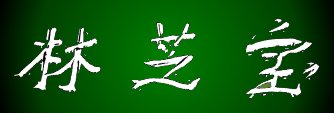|
|
|
Wong Fei Hoong
The legendary Southern Shaolin Master.
|
|
Wong Fei-Hung, one of the most famous masters of Hung Gar (Tiger-Crane form), was well-known for his "No-Shadow Kick," a kick reputed to be so fast that it did not cast a shadow! |
Huang Fei Hong, martial arts master and renowned doctor, was born in Xi Qiao Lu Zhou Village along the shores of Nanhai (the South China Sea) in 1847. He began learning martial arts from his father Huang Qi Ying, one of the Ten Tigers of Guangdong and a famous practitioner of Hong Quan (Hung Gar), since the age of five. By the age of twelve, he had learned all of the Huang family martial arts. His martial arts continued to improve after learning Tie Xian Quan (Iron Thread Fist) and Shuang Fei Tuo (Twin Flying Wheel) from Lin Fu Cheng and the famous Wu Ying Tui (No Shadow Kick) from Song Hui Tang.
After his father passed away, Huang Fei Hong inherited his position as a martial arts master, the youngest of his time. Later in his life, he became the trainer of the local militia upon requests by Wu Quan Mei, the governor of Guangdong, and Liu Yong Fu, leader of the famous Black Flag Army. It is later said that he was a master in many forms of martial arts, including Hong Quan, Tie Xian Quan, Wu Ying Tui, Zi Mu Dao (Mother and Son Broadsword), Luo Han Pao (Arhat Robe), Dan Shuang Hu Zhua (Single and Double Tiger Claw), Luo Han Jin Qian Biao (Arhat Coin Dart), among others.
Wong Fei Hoong learned from his father, Wong Kei Ying, who in turn learned from Luk Ah Choy. Luk Ah Choy was a junior classmate of Hoong Hei Khoon. Both of them were distinguished disciples of the Venerable Chee Seen, the First Patriarch of Southern Shaolin, at the southern Shaolin Monastery in Fujian province in south China.
Huang, who was one of the province's best lion dancers, was known around Guangzhou as the 'King of the Lions'
Throughout his life, Huang Fei Hong was renowned not only for his martial arts, but also for his altruism. He was an upright man and led a conservative lifestyle. He helped the poor by providing financial support and medical assistance. Huang Fei Hong married four times throughout the course of his his life, but in each case only after the death of his previous wife. He had a total of four sons, his favorite being Han Sen, who also came closest to learning all of his fatherís martial arts. Han Sen worked as a guard for a security company. Once, one of his coworkers by the name of Gui Yan Liang, seeing that Han Sen is very young, picked a fight with him, but lost after a few exchanges. Humiliated, Gui Yan Liang made Han Sen drunk during a Mid-autumn Festival party, and killed him with a pistol. Huang Fei Hong learned that his son died as a result of a fight and revenge on the part of his discontent opponent. From then on, he vowed not to teach his sons martial arts again. By the time his fourth son Han Xi had grown up, although he bore great resemblance to his father, he was a complete stranger to the world of martial arts and his future profession would have nothing to do with kung fu.
In the August of 1924, while Sun Zhong Shan (Sun Yatsen) was fighting a campaign in the north, Chen Lian Bo, with support from the British, revolted in Guangzhou. During the havoc, Huang Fei Hongís medicine shop Bao Zhi Lin (Po Chi Lam), along with the sign given to him by Liu Yong Fu and his only photograph, were destroyed. Saddened by this loss, Huang became sick, and died in the winter of that year at the age of 77. His last wife Muo Gui Lan, along with two of his sons, immigrated to Hong Kong and opened up martial arts schools there. Muo died in Hong Kong in 1983.
Throughout his life, Huang Fei Hong helped popularize Chinese kung fu, especially in Guangdong and Guangxi. His martial arts were for the most part preserved by his pupils and are still practiced in China today. His most famous male pupils were Liang Kuan and Lin Shi Rong, while his most well-known female students were his wife Muo Gui Lan and Deng Xiu Qiong. Huang was not only a renowned martial arts, but a famed doctor as well. During the reign of Emperor Guang Xu, he opened the medicine shop Bao Zhi Lin in Guangzhou and provided medical assistance to all who came to him, from famous generals to poor commonfolk. The famous general Liu Yong Fu personally wrote a sign for Bao Zhi Lin, with the words "Proficient in Both Technique and Skill."
Huang Fei Hong is most well known in Asian cinema. More than 100 movies were made about him, with Hong Kong actor Guan De Xing (Kwan Tak Hing) acting as Huang Fei Hong in 77 of those films. More recently, Li Lian Jie (Jet Li) and Zhao Wen Zhuo (Chiu Man Cheuk) has also portrayed him with great skill.
Bo Chi Lam, meaning 'Precious
Iris Wood". This was the name of the
residence and kwoon of Wong Fei Hung.
